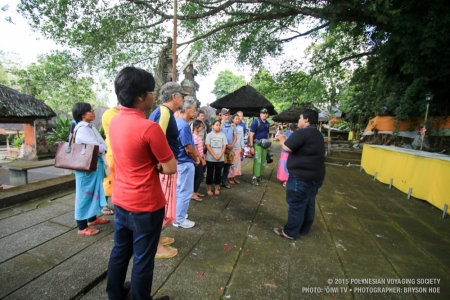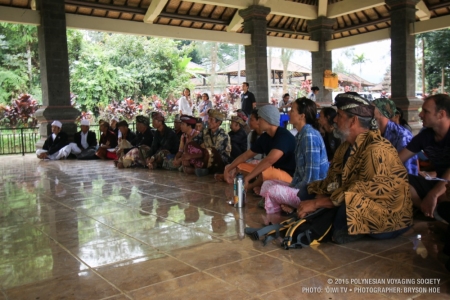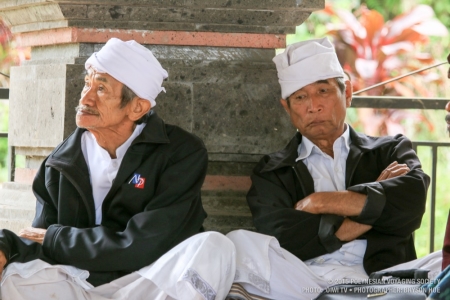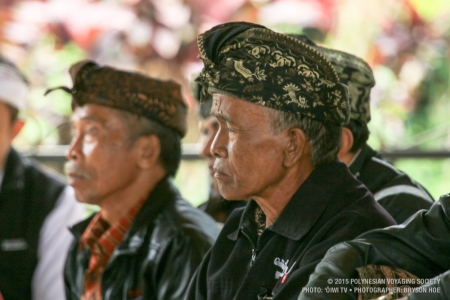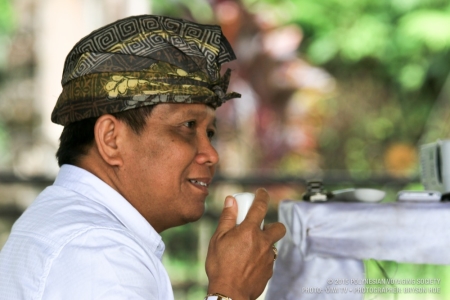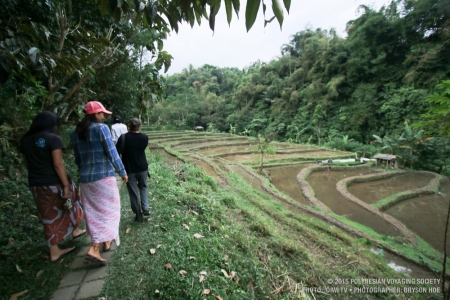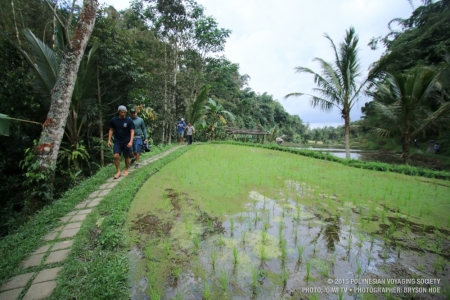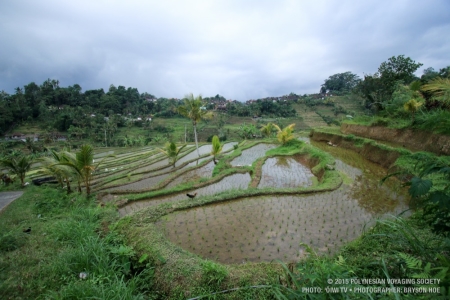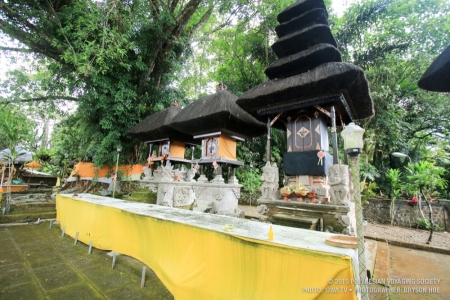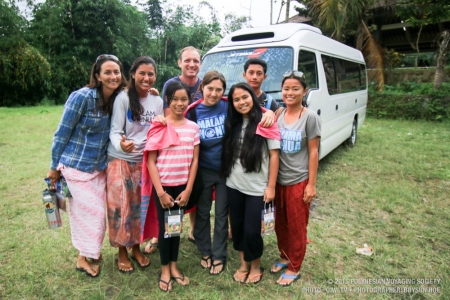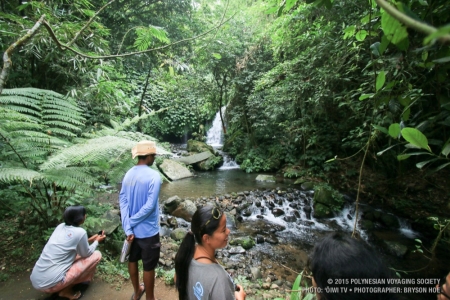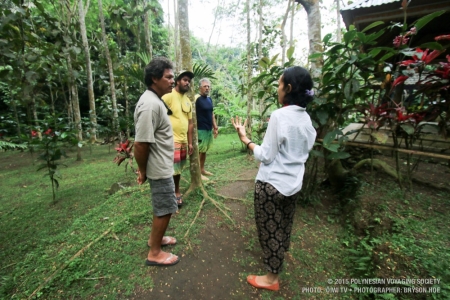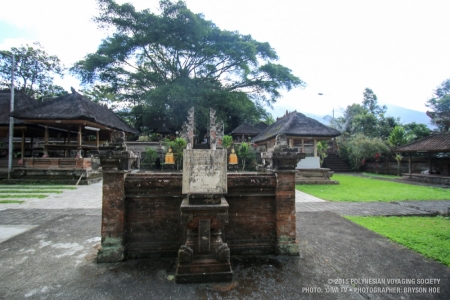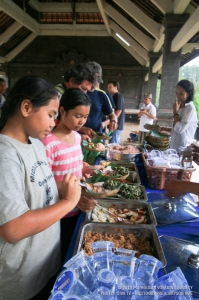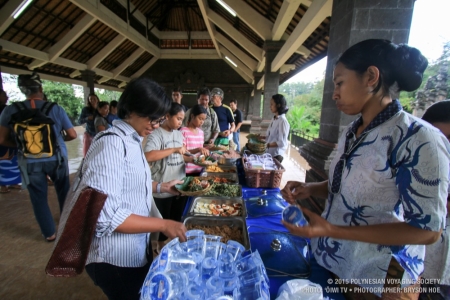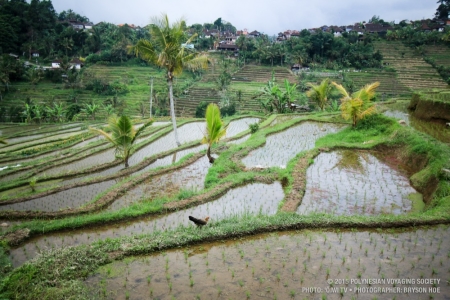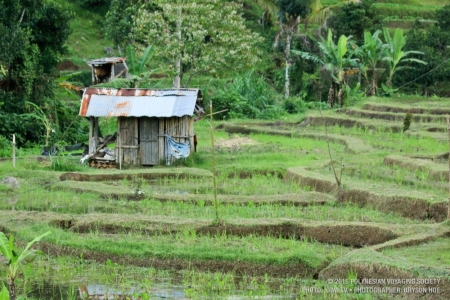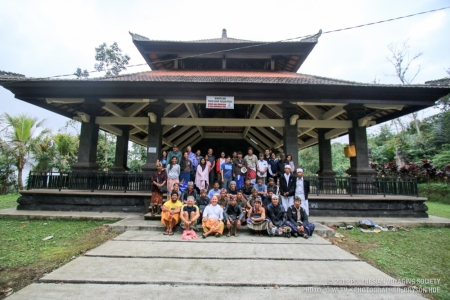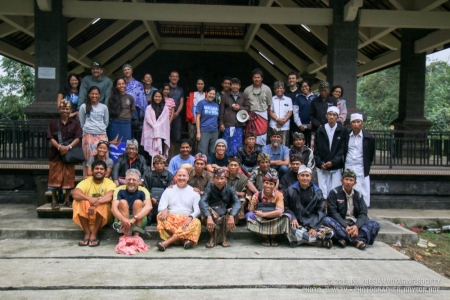
Hōkūleʻa Update | August 6, 2015
- Posted on 7 Aug 2015
- In Education, Newsletter, Teachers, Updates
Update by Miki Tomita
Hōkūleʻa crewmembers were honored and humbled to visit with Balinese agricultural leaders and experts to learn about traditional farming and land management practices in Bali, and to share about our Mālama Honua Worldwide Voyage and traditional farming practices in Hawaiʻi through a recent visit to Jatiluwih Subak, a UNESCO World Heritage site. As Hawaiʻi has its highly sophisticated ahupuaʻa system for management of water and therefore land, Bali has it’s subak system.
Similar to ahupuaʻa, the subak is a cooperative social system in which dozens of farmers collectively steward the water that flows through their many terraces, committed to maintaining its purity environmentally and spiritually. According to local experts, this agricultural practice has been in place since 9th century, and has been integral in helping to support the exponential population growth through the guidance of the collective. The subak begins at the forests which provide and protect the water supply, continuing through the terraced rice paddies and fields connected by canals and tunnels, and includes villages and temples that mark the water source or passageway. Water management in the subak is actually the responsibility of the priests of the water temples, who practices the Tri Hita Karan traditional Balinese philosophy. Roughly translated Tri Hita Karan is “three causes of well-being” and refers to harmony among people, harmony with nature and environment, and harmony with God.
Most important to the farmers in the subak is their access to and respect for their water systems, and being allowed to continue to practice their religious protocol with regard to water, land, and the water temples.
As part of our huakaʻi, crewmembers visited Petali Temple, one of the water temples of the Jatiluwih subak. Later we visited and walked through part of the subak, hiking to the waterfall from which the water of the subak flows. In Balinese tradition, spirits are part of every element in the environment, and prayer and offerings are everywhere. Crewmembers were invited to touch the sacred water, offer prayer at the water temple, and provided the opportunity to reflect on the importance of water to life.
As we sail around the world, we are indeed finding that we are more alike than we are different. People across the vast expanse of our Island Earth are connected by a deep reverence for the ways of the past, and recognition of our water and land as sacred ancestral treasures meant to be guarded and stewarded.
Mahalo e Bali for sharing with us your subak story of hope, and for allowing us to share the story of Hōkūleʻa and how so many at home work to mālama honua through restoration and revitalization of ahupuaʻa.
Please help keep us sailing for future generations. All contributions make a difference for our voyage. Mahalo nui loa!
